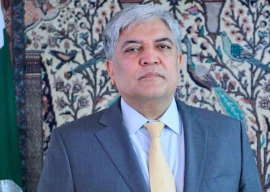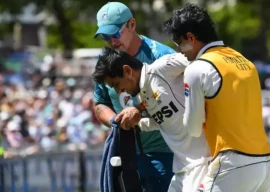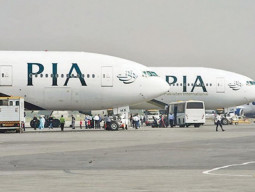At the heart of this crisis lies a fundamental question, which at one time or the other has been asked in almost all media markets across the world: “What is journalism for?”
Trust a pope to come up with an explanation. This is what John Paul II said in 2000: “With its vast and direct influence on public opinion, journalism cannot be guided by economic forces, profit, and special interest. It must instead be felt as a mission in a certain sense sacred, carried out in the knowledge that the powerful means of communication have been entrusted to you for the good of all.”
The operative part is the “good of all”. In essence then, journalists have a wider responsibility to the citizenry at large, a responsibility which hinges on them to uphold the sacred public trust by telling their readers/viewers the truth. Truth itself may be open to many philosophical interpretations, but in the context of journalism, it can simply mean protecting information from all external agendas and saying it as it is.
These agendas take many shapes and forms. Personal, political, and corporate, to name a few. The first two are usually not hard to detect, and neither are they hard to grapple with. Probably because mostly they come in shades of black or white. It’s the corporate agendas that pose the biggest challenge. And especially so in the Pakistani context. Here’s how: Pakistani channels are corporate entities, just like most channels in the private sector the world over. No issues here. Corporate entities exist to make profit. No issues here either. But here’s where a traditional corporate entity and a media organisation should begin to diverge.
This is exactly why in traditional newsrooms there exists a firewall between the editorial and marketing divisions. The corporate side of the media house has to look at the balance sheet, but expecting the journalist to do the same is not only unfair, it undercuts the very basis of journalistic principles. Proprietors who treat their media business like any other business end up falling into this trap, perhaps not realizing that a media house by its very nature has a social responsibility within a democratic polity which far outweighs consideration centred around dollars and cents. They fail to realise that journalists are not like employees of other companies because they have an obligation and a responsibility that overrides their employers’ immediate corporate interests.
By fulfilling this responsibility, journalists can accumulate a “trust capital”, or in other words, credibility. And credibility — if nurtured lovingly — ultimately translates into financial gain for the proprietor and his news organisation. After buying the Washington Post in 1933, Eugene Meyer laid down a principle which stated: “In pursuit of the truth, the newspaper shall be prepared to make sacrifices of its material fortunes, if such a course be necessary for the public good.”
Such an approach frees the journalist from the burdens of corporate pressures, and allows him to pursue professional excellence. This is what is expected from him. But to do this requires a deep understanding of the philosophy of journalism which is deeply woven into the fabric of a free and democratic society. What are the chances that the likes of Maya Khan know such a responsibility weighs down on their shoulders when they venture out with cameras and DSNGs? What are the chances that proprietors of media houses are aware of the sacred trust they have been bestowed upon when they get a license to start a news channel? And what are the chances that journalists working in the electronic media in Pakistan realise that their primary loyalty lies not with their corporate organisations, but with the average citizen of Pakistan.
This here is where the root cause of the media crisis lies. And to overcome it, we the media will need to do more than just fire an anchor who prances around in public parks demanding to see nikah namas.
Published in The Express Tribune, February 1st, 2012.
COMMENTS (12)
Comments are moderated and generally will be posted if they are on-topic and not abusive.
For more information, please see our Comments FAQ
1736816645-0/Elon-Musk-(3)1736816645-0-405x300.webp)


1737286368-0/trump-(1)1737286368-0-165x106.webp)







1737185197-0/Express-Tribune-(2)1737185197-0-270x192.webp)
1737188551-0/Untitled-design-(97)1737188551-0-270x192.webp)



1737114296-0/Express-Tribune---News-Desk-(4)1737114296-0-270x192.webp)

In some cases its now difficult to differentiate between media and mafia
The media boom of the last 10 years in Pakistan has not been regulated by a clear and properly enforced 'national media policy'.
Journalists, editors, producers etc are supposed to be trained and nurtured by institutions (public, private, govt, corporate) to keep in mind ethical boundaries, professionalism, critical thinking, and proper fact-checking of any and every piece of information they get.
Unfortunately, the obsession in our media channels to be first in "exclusive breaking news" means they will go to all depths and extremes to shout out their names without even preparing a proper script.
Freedom of speech is a human right, but freedom of speech is also an even bigger responsibility which requires more than just having an opinion.
Mr. Hussain asks ... "And what are the chances that journalists working in the electronic media in Pakistan realise that their primary loyalty lies not with their corporate organisations, but with the average citizen of Pakistan."
The answer is "zero". Take the Saleem Shahzad case for example ...
And what about who owns media and how that influences what media covers or avoids covering. This is issue was raised about American media:but is an issue in more countries. http://www.niemanwatchdog.org/index.cfm?fuseaction=Background.view&backgroundid=605 How the media enable the Republican tax agenda Do also read the comments.
Very nicely articulated Fahad Hussain. People like you should and can take a lead on 'watchdog' thing. Since, you have seen different spheres of media such as print and electronic as well as editorial thing so this responsibility lies on you as well. Good article....with several insights!
Your article is good and of much relevance to the ET itself...but Maya Khan shouldnt have been brought into this discussion...she was a morning show host...not journalist per se
Why throw all the blame on Maya Khan a;lone?What about the programme producer and the Director of programmes?Dont they have any role in deciding what goes on air?
But to do this requires a deep understanding of the philosophy of journalism which is deeply woven into the fabric of a free and democratic society.
The last journalist in Pakistan to have such an understanding was probably Saleem Shahzad.
there has been lots of hue and cry on maya khans report as this has hurts people from allolitical orientations. Why not similar protest when journalists have started psychological warfare against the current government ,abuse ,suggestions ,mocking body language ,ridicule, incitement to rebel and all and all like this is daily activity for media men
why blame maya khan. where was the editorial team of samma tv. these channels are there to make money.
I never thought Maya Khan was a journalist or even other hosts. We need to redefine the word 'Journalism'!
It is the media watch dog who watches the media. The media conglomerates should shun the sleazy media outlets in their national gatherings and people will eventually understand which media to be a trustworthy outlet for the information that affects their life.
In the US no one invites Play boy editorial staff or Rush Limbaugh for media gathering.
The fact that PAK media talk about media ethics in itself a major improvement. In the world of internet, traditional media have little influence with those who can access the Internet.
Modern PAK media is in adolescent stage and soon will overcome the hormonal surge.